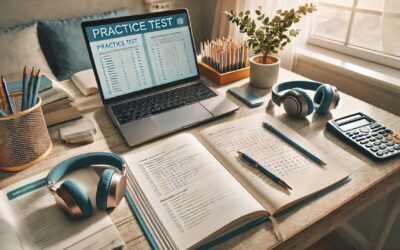Language Learning Strategies: Developing a Daily Learning Routine
Language learning is an essential part of life in our globalized world. It opens up doors to new cultures, communication with people from diverse backgrounds, and employment opportunities. However, language learning can be a daunting task, especially if you do not have a structured routine. Developing a daily learning routine can help you achieve your language learning goals effectively and efficiently.
Daily Learning Routine
We will explore some language learning strategies that you can incorporate into your daily routine to enhance your language learning process.
1. Set Goals
The first step to developing a daily learning routine is setting realistic and achievable goals. It is essential to identify why you want to learn the language and what you hope to achieve. Your goals should be specific, measurable, attainable, relevant, and time-bound (SMART). Once you have established your goals, you can break them down into smaller tasks and incorporate them into your daily routine.
2. Create a Learning Schedule
A learning schedule helps you stay organized and accountable. Determine how much time you can commit to learning the language each day and create a schedule that fits your lifestyle. Make sure that you set aside time for all aspects of language learning, including listening, speaking, reading, writing, grammar, and vocabulary. Additionally, try to keep your learning schedule consistent to develop a habit and make language learning a part of your daily routine.
3. Use a Variety of Resources
There are various language learning resources available, such as textbooks, language apps, podcasts — such as English Plus Podcast, and online courses. To make the most of your learning experience, it is essential to use a variety of resources that cater to different learning styles. For example, if you are a visual learner, you can use flashcards or watch videos. If you are an auditory learner, you can listen to podcasts or language learning apps. Moreover, utilizing a combination of resources can help reinforce your understanding and retention of the language.
4. Practice Daily
Consistency is key when it comes to language learning. Practicing the language daily is more effective than cramming once a week. Set aside time each day to practice your language skills, whether it be listening to music or watching TV shows in the target language, speaking with native speakers, or writing short paragraphs. Practice makes perfect, and daily practice can help you make progress faster.
5. Immerse Yourself in the Language
Immersing yourself in the language can help you develop a natural understanding and fluency. Try to surround yourself with the language as much as possible, such as listening to music, watching TV shows or movies, reading books or articles, and speaking with native speakers. Immersion can help you understand the language in context and develop a more natural accent.
6. Focus on Vocabulary
Vocabulary is the foundation of language learning. Try to learn a few new words each day and incorporate them into your daily conversations. Additionally, practice using these words in different contexts to reinforce your understanding and retention.
7. Monitor Your Progress
Monitoring your progress can help you identify areas of improvement and track your achievements. Keep a record of your daily learning activities, such as the new words you learned or the conversations you had in the target language. Additionally, periodically test your understanding of the language, such as taking practice quizzes or speaking with native speakers.
In conclusion, developing a daily learning routine can help you achieve your language learning goals efficiently and effectively. Set realistic and achievable goals, create a learning schedule, use a variety of resources, practice daily, immerse yourself in the language, focus on vocabulary, and monitor your progress. By incorporating these strategies into your daily routine, you can enhance your language learning experience and become proficient in the language of your choice.
Keywords:
- Language learning: The process of acquiring new language skills, including speaking, listening, reading, and writing, in a foreign language.
- Daily learning routine: A structured plan of language learning activities that an individual practices every day.
- Goals: Specific, measurable, attainable, relevant, and time-bound (SMART) objectives that an individual sets to achieve their language learning targets.
- Learning schedule: A plan that outlines the specific time and duration an individual dedicates to various language learning activities, including listening, speaking, reading, writing, grammar, and vocabulary.
- Resources: Learning tools, including textbooks, language apps, podcasts, and online courses, that an individual uses to enhance their language learning process.
- Practice: Regular repetition of language learning activities to develop and improve language skills.
- Immersion: Surrounding oneself with the language being learned as much as possible to develop a natural understanding and fluency.
- Vocabulary: The foundation of language learning, including words, phrases, and expressions.
- Monitoring progress: Tracking and recording language learning activities and achievements to identify areas for improvement and measure progress.









0 Comments